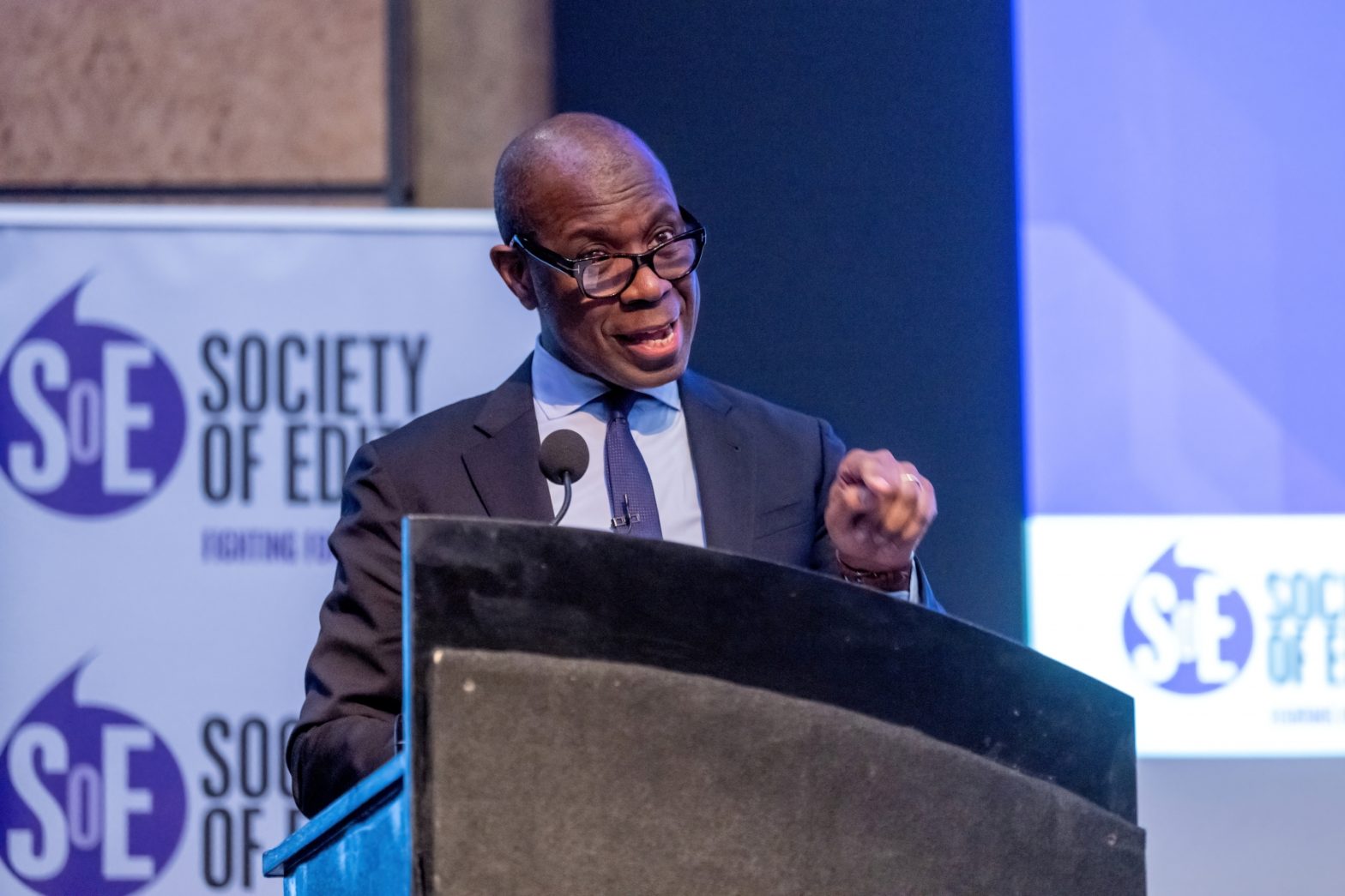
ONE of Britain’s most senior broadcasters feels that minority representation in the BBC has improved since he first joined but still lags behind when it comes to senior positions within the broadcaster.
BBC Journalist and Presenter Clive Myrie was speaking on press freedom at the 2023 Society of Editors Media Freedom Conference, which took place at the Leonardo Royal Hotel, London City on Wednesday (15).
He suggested the corporation “has got a way to go” with diversity, “even though the BBC is better than most other media organisations in doing that”.
He said: “I am tired of hearing black and brown people say, ‘Well I only watch Channel 4 News because it gives me certain things, I don’t think the BBC gives me.’ At a certain level, there are black and brown people. [As you] get higher and higher in the BBC and they thin out, you don’t see that.”
He added: “Even though I think the percentage of black and brown people in the BBC, ethnic minorities, is about 13 per cent, 14 per cent – which is the national average for black and brown people and people of an ethnic minority background within the general population.
“So, the BBC, on the face of it, is actually doing really well… But is the power in those hands? Not necessarily. And that’s where we need to improve.”
The true enemies of the people, according to Myrie, are “the powerful” and “zealous true believers” in politics and for them, freedom of the press is annoying, frustrating, even dangerous. He also provided a defence of journalistic objectivity, stating that a biased BBC cannot expect viewers to pay the licence fee.
These organisations, according to him, “seek propaganda and the bolstering of their own narrow point of view” rather than promoting neutrality. He asserted that “ruptured societies” result from the decline of journalistic objectivity.
Myrie connected the election denial and the assault by a Trump fan on his BBC colleague Ron Skeans during the 2020 campaign: “Now of course, we all know what happened before the Trump fan attacked Ron: the President spoke of the fake news media and made claims about how the press had misrepresented him.”
Myrie continued in his address by citing instances of attacks on press freedom in Georgia, Egypt, China, Russia, and the UK, adding that: “Two of my BBC colleagues in the UK last year were accosted and threatened by ordinary members of the public while simply doing their jobs.”
“We should never apologise or regret what we do,” said Myrie. “We must fight for our right to keep doing it.”
He also criticised the Hertfordshire Police for detaining four journalists who were covering a Just Stop Oil protest in November.
More than 150 editors and journalists attended the high-profile conference to discuss the future of news and hear from renowned journalists and business professionals including Alison Phillips, Editor at the Daily Mirror; Ben Taylor, Editor at The Sunday Times; Rachel Johnson, Journalist and Presenter; Julia Hartley-Brewer, Journalist and TalkTV and talkRADIO presenter; Gabriel Pogrund, Whitehall Editor at The Sunday Times; Rizwana Hamid, Director at the Centre for Media Monitoring; Sarah Whitehead, Deputy Head of Newsgathering at Sky News, and Cait FitzSimons, 5 News Editor.